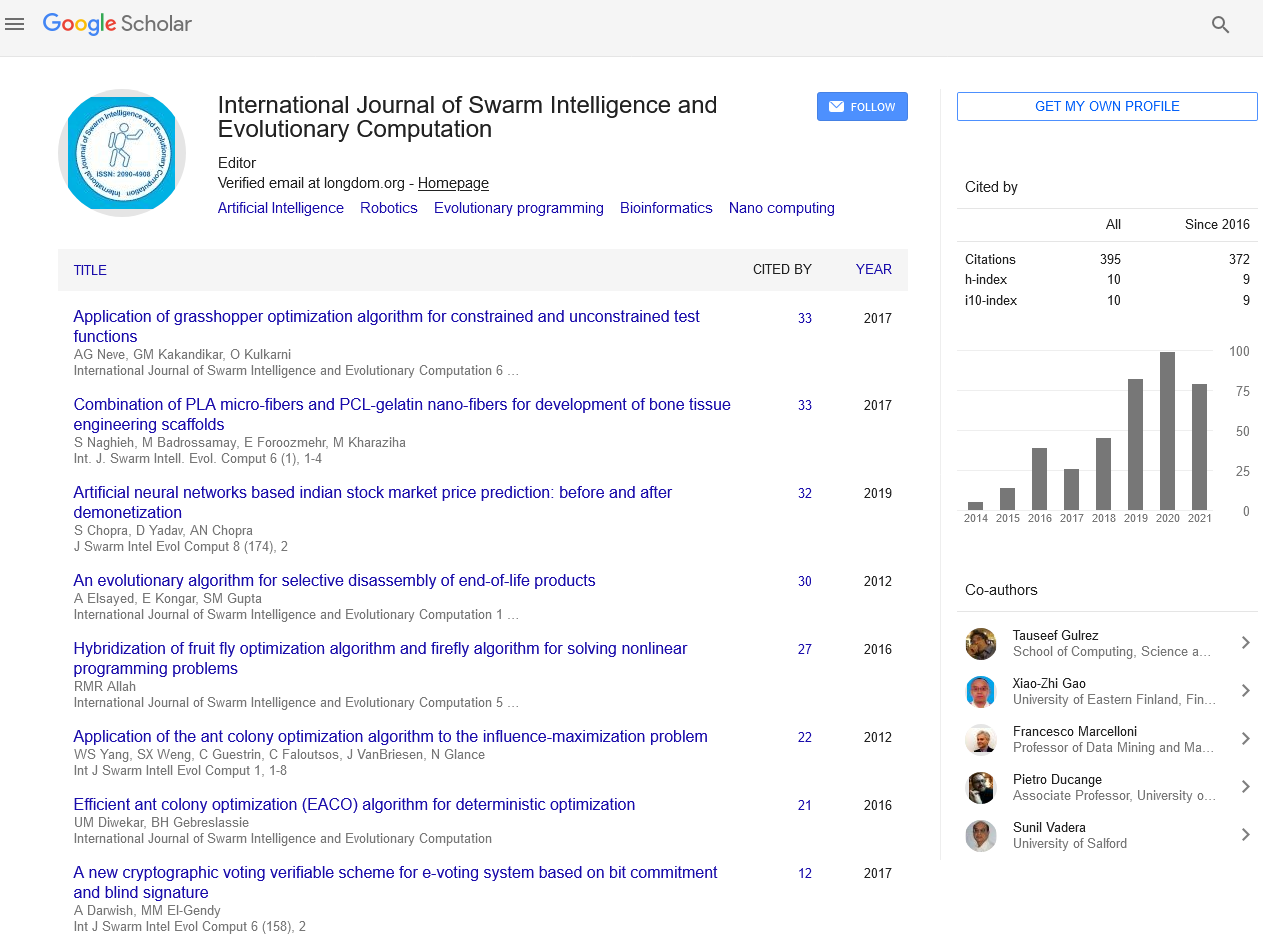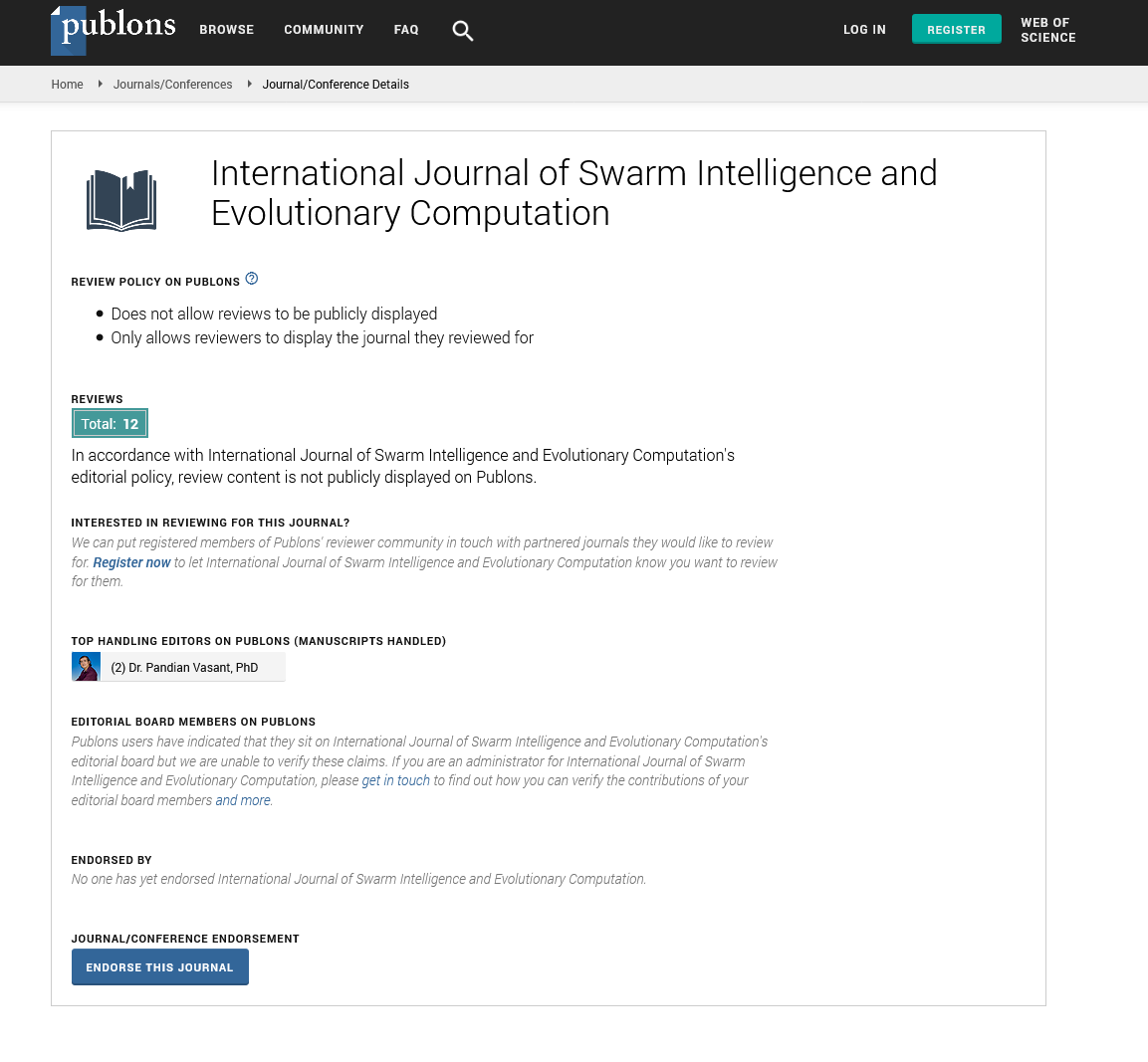Indexed In
- Genamics JournalSeek
- RefSeek
- Hamdard University
- EBSCO A-Z
- OCLC- WorldCat
- Publons
- Euro Pub
- Google Scholar
Useful Links
Share This Page
Journal Flyer

Open Access Journals
- Agri and Aquaculture
- Biochemistry
- Bioinformatics & Systems Biology
- Business & Management
- Chemistry
- Clinical Sciences
- Engineering
- Food & Nutrition
- General Science
- Genetics & Molecular Biology
- Immunology & Microbiology
- Medical Sciences
- Neuroscience & Psychology
- Nursing & Health Care
- Pharmaceutical Sciences
Opinion Article - (2022) Volume 11, Issue 5
Advantages of High Performance Computing
Libo Zhang*Received: 12-May-2022, Manuscript No. SIEC-22-17052; Editor assigned: 16-May-2022, Pre QC No. SIEC-22-17052(PQ); Reviewed: 03-Jun-2022, QC No. SIEC-22-17052; Revised: 13-Jun-2022, Manuscript No. SIEC-22-17052(R); Published: 20-Jun-2022, DOI: 10.35248/2090-4908.22.11.255
Description
High-performance computing generally refers to the practice of aggregating computing power in a way that provides performance far beyond what one can get from a typical desktop or workstation in order to solve real-world problems. HPC integrates systems administration (including network and security knowledge) and parallel programming into a multidisciplinary field that combines digital electronics, computer architecture, systems software, programming languages, algorithms and computational techniques. HPC technologies are the tools and systems used to implement and create high-performance computing systems. Recently, HPC systems have moved from supercomputing to cluster and grid computing. Due to the need for cluster and mesh networking, high-performance computing technologies are promoted through the use of a compact network backbone, as the compact backbone architecture is simple to troubleshoot and the upgrade may apply to one router instead of multiple routers.
The term is often associated with computers used for scientific research or computer science. High Performance Engineering Computing (HPEC) generally refers to the engineering applications of cluster-based computing (such as computational fluid dynamics and the construction and testing of virtual prototype). HPC has also been adopted for business uses such as data warehousing, business applications, and transaction processing.
High Performance Computing (HPC) is a term that is derived from the term "supercomputer". HPC is sometimes used as a synonym for supercomputer; but, in other contexts, "supercomputer" is used to refer to a more powerful subset of "high-performance computing", and the term "supercomputer" becomes a subset of "supercomputer".
Since most applications today are not designed for HPC technologies but are modernized, they are not designed or tested to evolve into more powerful processors or machines. Since clusters and networks use multiple processors and computers, these scaling issues could cripple critical systems in future supercomputing systems. Therefore, either the existing tools do not address the needs of the high performance computing community or the HPC community is unaware of these tools. A few examples of commercial HPC technologies include:
• The simulation of car crashes for structural design
• Molecular interaction for new drug design
• The airflow over automobiles or airplanes
Importance of HPC
HPC processes large amounts of data faster than standard PCs, provides faster insights, and provides enterprises with the opportunity to stay ahead of the competition. HPC solutions are millions of times more powerful than the fastest laptops. This capability allows enterprises to perform large-scale analytical calculations such as Millions of scenarios with terabytes of data. For example, scenario planning requires important analytical calculations provided by HPC. Weather forecasts or risk management assessments. Organizations can also run design simulations before physically building chips, cars, and so on. HPC provides outstanding performance that enables organizations to do more at less cost.
Another major application for HPC is in the fields of medical and material advancements. For instance, HPC can be deployed to:
Combat cancer: Machine learning algorithms will help supply medical researchers with a comprehensive view of the U.S. cancer population at a granular level of detail.
Identify next-generation materials: Deep learning could help scientists identify materials for better batteries, more resilient building materials and more efficient semiconductors.
Understand patterns of disease: Using a mix of artificial intelligence (AI) techniques, researchers will identify patterns in the function, cooperation, and evolution of human proteins and cellular systems.
Advantages
Flexibility
Users can scale services to fit their needs, customize applications and access specialized HPC data centers from anywhere with an internet connection.
Efficiency
Users can handle more HPC workloads and save labor costs without worrying about the cost and maintenance of the underlying infrastructure.
Strategic value
HPC cloud services give enterprises a competitive advantage by providing the most innovative technology available to meet capacity requirements.
Citation: Zhang L (2022) Advantages of High Performance Computing. Int J Swarm Evol Comput. 11:255.
Copyright: © 2022 Zhang L. This is an open-access article distributed under the terms of the Creative Commons Attribution License, which permits unrestricted use, distribution, and reproduction in any medium, provided the original author and source are credited.


